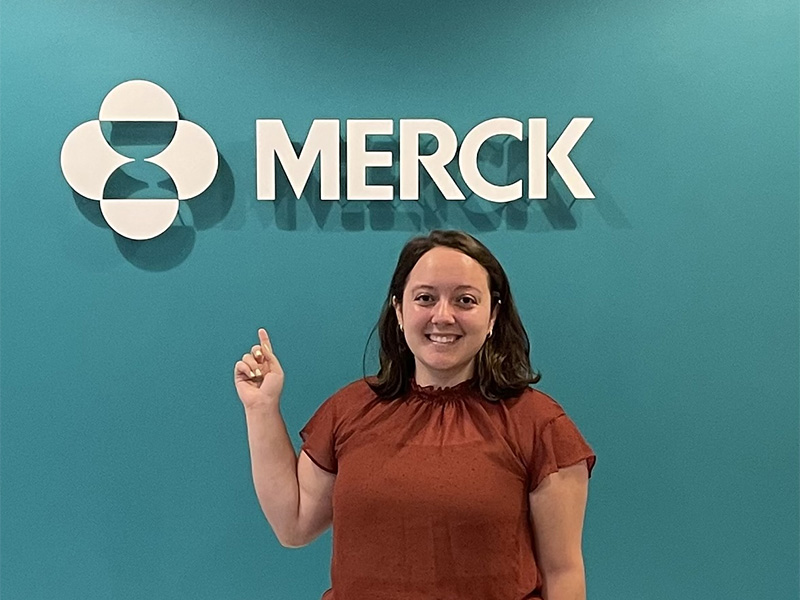After earning her undergraduate degree in management information systems, Zoe Weiner, MS cybersecurity ’23, knew that she wanted a graduate program with real-world work experience in addition to classroom training.
“I had a background in business and technology, but I wanted to explore the technical side a bit more,” Weiner said. “I knew that just getting another degree wasn’t enough – textbooks are a great start but I feel like I fully grasp concepts more when I am using them.”

Drexel’s graduate cybersecurity program, with its optional co-op experience, offered Weiner exactly what she was looking for. Students in the program can get three or six months of work experience woven into their academic studies when pursuing the degree. Wiener landed a co-op job with pharmaceutical giant Merck & Co.
“I was looking for a company that has a robust risk management and cybersecurity infrastructure,” she shared. “I knew I liked working in the pharmaceuticals industry after an undergrad co-op in the field and understood how strict their standards are — a good thing if I want to learn about regulated best practices. Merck is a larger company with a lot of built-up infrastructure, and it made me confident that I could see a variety of different teams that work in security and experience the different specialties every day that protect patients.”
Weiner’s co-op position as a business analyst is on a security engineering automation team. The team works with different functional groups within Risk Management and Security to automate different processes using UiPath, an automation platform.
“I am learning new things every day,” Weiner said. “Learning about UiPath and meeting with different cybersecurity functions ranging from Access & Administration to Security Operations, and Vulnerability Management has been eye-opening. What I am studying in my master's program gives me a solid background understanding of what we are protecting against, why we are doing it, and how threats can impact an organization. My information science and computer science classes have given me a good background to work within Information Technology. Because of my background and education, I can understand concepts and functions with my team quickly.”
Weiner said that her co-op experience has influenced her choices in both graduate concentration and in her career goals.
“If anything, it is also exposing me to the different possibilities that going into this professional direction offers,” she said. “A lot of the time, when people consider cybersecurity they think of pen-testers or those flashy green coded screens you see in movies. There is so much more to it than that. It has been neat getting both a technical and a business side view to this field.”
The experience will also inform Weiner’s approach when she returns to the classroom.
“I have gained new knowledge about how different cybersecurity teams are structured, gotten experience with the software development lifecycle, and found a new focus on how people play a big part in cybersecurity,” she said. “I'm excited to keep learning.”